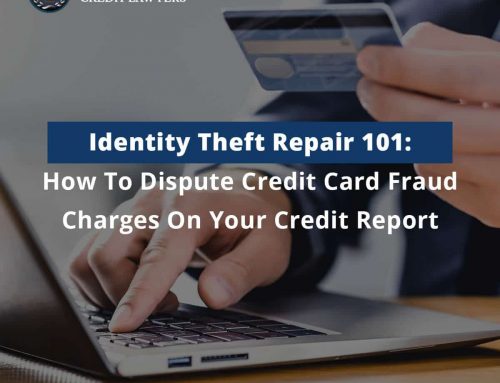Most Arizona consumers have at least heard about the Dark Web, but they may not know exactly what it is or why it exists. Of course, it isn’t a real place. The Dark Web is a term that describes the part of the internet that is inaccessible to most internet users. If you’re an average Arizona consumer, Dark Web activity should give you cause for concern. Why? This is where hackers go to sell stolen personal identifiable information (PII) online. If you are the victim of a single identity thief or a large-scale data breach, it’s likely that your data will show up on the Dark Web. Here, a fraudster can simply purchase it the way you might buy a toaster on Amazon. That’s pretty scary, huh?
A Quick Rundown for Arizonians about the Differences between the Dark Web and the Deep Web
Here is a fact that most Arizona consumers will find surprising: Over 90% of the internet is known as the Deep Web. This just means that a huge chunk of the internet isn’t searched by search engines, and most of the Deep Web is pretty innocent. Actually, it’s mostly made up of things like school websites, internal business pages, and database entries that are searchable within a site. For example, if you have access to your son or daughter’s school lunch menus or bus schedules, this information is probably part of the Deep Web. However, you can still get to it because you were given access, but it isn’t publicly searchable.
What is publicly searchable on the internet? Any web address that starts with “www,” which stands for World Wide Web. Only making up about 4% of the whole internet, you probably spend most of your net time on the World Wide Web. Now, stop and think about the kind of information you share on the World Wide Web. If you have social media accounts that aren’t closed to the public, your data is probably more exposed than you realize.
This brings us to the Dark Web, or the other 6% of the internet. Naturally, most Arizona consumers don’t have access to any part of the Dark Web. To get here, you need specific types of software. Because pages on the Dark Web are not indexed by search engines, information can be shared and exchanged anonymously. This is why the Dark Web serves as the preferred marketplace for hackers to buy and sell PII. Of course, no Arizonian wants their personal data ending up here.
Are you making it Easy for Hackers to Turn Your Personally Identifiable Information into Sellable Goods on the Dark Web?
Sometimes big data breaches happen in Arizona and throughout the country. Not long ago, both Target and Chipotle were hacked. A huge amount of payment information was stolen from consumers who simply shopped or dined at these places. Truly, the only way to keep personal data 100% safe all of the time is to never use a debit or credit cards anywhere. For most Arizona consumers, a cash-only lifestyle isn’t a realistic – or desirable – option.
However, you can make it harder for hackers to steal your PII and sell it on the Dark Web. In fact, a recent study from Experian revealed that a lot of consumers don’t realize how much and what kinds of personal data they’re exposing online. Here is a breakdown of the study’s findings:
- 76% of consumers make their birthdates available.
- 73% share their phone numbers
- 49% have exposed credit card information.
- 39% reveal partial Social Security numbers.
- 29% have bank account numbers out there.
- 25% keep full Social Security number is non-secure places.
- 22% of consumers have exposed driver’s license information on the web.
These numbers indicate that most Arizona consumers don’t exercise nearly enough caution on the internet. So, here are a few things that you can do to protect your PII on the World Wide Web:
- Make sure that none of your social media accounts are publicly visible.
- Don’t make purchases online while using public Wi-Fi.
- Refrain from sharing your account user names and passwords with others.
- Only shop on secured websites.
The Dark Web is a scary place, but it’s less intimidating when the likelihood of your personal information showing up there drops. Therefore, do everything you can to make it hard for hackers who would turn your personal data into quick cash.
Another Way for Arizona Consumers to Protect themselves against Identity Theft
Again, sometimes big data breaches happen, and there’s nothing that the average Arizona consumer can do to prevent them. This is why you should check your credit reports at least once every 12 months. Monitoring your credit will give you the opportunity to catch fraudulent accounts opened in your name. It will also allow you to catch any errors lurking on one, two, or all three of your credit reports. Sadly, a lot of Arizona consumers don’t realize that credit report inaccuracies are common, and many of these mistakes are harmful to credit scores.
If, after visiting www.annualcreditreport.com and requesting credit reports from TransUnion, Experian, and Equifax, you discover errors, the next step is easy. Arizona residents can get a FREE credit repair lawyer to dispute these mistakes and have them removed. At Arizona Credit Lawyers, we can also help you with fraudulent accounts on your credit reports. This service will also cost you nothing out of pocket.
How Arizonians can Get a Free Credit Repair Lawyer
Don’t let fraudulent accounts or errors on your credit reports bring your credit score down. At, Arizona Credit Lawyers we’ve been cleaning up credit reports for consumers since 2008 for free. How do we do it? All of our fees come from the defendants in settled cases. This is why our clients pay nothing for the work we do.
If your identity has been stolen or you have mistakes or errors on your credit report, call me at Attorney Gary Nitzkin at (480) 771-6001 or contact us on our contact page.



